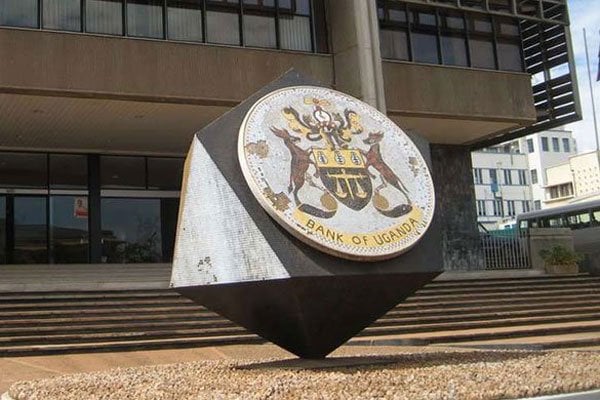
A man makes a transaction with a mobile money agent. Bank of Uganda says the new directive seeks to curb growing online fraud and cybercrime incidents involving mobile money platforms. PHOTO /FILE.
Mobile money agents across Kampala city have said the directive by the Bank of Uganda that requires them to verify a customer’s identity for withdrawals and deposits of Shs1m and above is not viable.
The Central Bank’s new regulations, which take immediate effect, mandate all customers making mobile money transactions above Shs1 million to present valid National Identity Cards to mobile money agents during these transactions.
In a mini-survey conducted by the Monitor around Kampala on April 29, mobile money agents were conducting business as usual without customers presenting their National IDs.
In Luzira, where Mr Simon Busuulwa operates mobile money shops, the directive is yet to be implemented since most of the clients lack national IDs.
“Besides, why would you request someone’s ID when they are withdrawing money via their phone?” Mr Busuulwa queried.
“Ugandans are resilient, but the government should prioritise educating them about the process of using National IDs and passports. Additionally, some Ugandans don’t carry their original IDs. Most of my clients who withdraw large amounts don’t have their SIM cards registered in their names,” added Busuulwa.
The directive by Bank of Uganda seeks to curb growing online fraud and cybercrime incidents involving mobile money platforms.
No clear system
Ms Angela Nabbosa, a mobile money agent who operates around Bugolobi Market, urged the Central Bank to implement a clear system such as a machine to record transactions.
“The message I received from MTN says the directive starts next month, but I’m sure it’s going to fail like many government projects. Let the Bank of Uganda come up with a clear system, perhaps in the form of a machine that records transactions directly to their accounts,” she said.
Ms Nabbosa said before implementing such a directive, the Bank of Uganda should have consulted agents, noting that Ugandans are not tech-savvy.
She explained that they will lose their customers if they begin asking them for national IDs, which they consider as an inconvenience.
“If you ask for a national ID, they might withdraw only Shs800, 000 and then go to someone else to withdraw the balance,” she said.
Ms Constance Mirembe, a mobile money agent in Nakawa, expressed frustration over the directive, which she said was put in place without consultations.
“The issue with our leaders is that they sit in their offices and dictate policies without conducting enough research. In the end, it’s the mobile money agents who lose. And I would also advise my clients to withdraw in small amounts not exceeding Shs1m to stay in business,” she said.
“Now they have provided an opportunity for Nasser Road to begin forging national IDs for scams. There will always be scammers in any monetary business. Even in those big banks with cameras, we frequently hear stories of theft within the banks,” she added.
Nevertheless, the management of Airtel Uganda said the directive is being implemented, and agents are supposed to use their record books. Whoever doesn’t present an ID should be denied services.
Airtel processes
In an interview with this publication, Mr David Birungi, the public relations manager of Airtel Uganda, said biometric machines would also be rolled out over time, and agents are required to use their record books.
“The biometric machines are going to be rolled out, but as you can appreciate, they don’t come cheap. That means we are going to implement them as we go along, but as of now, we have the books as required, and we keep the records,” Mr Birungi said.
However, he noted that the company is still exploring the possibility of agents purchasing the machines themselves.
Mr Birungi said every person is supposed to have a number registered in their name.
“Numbers that people had that were not registered in their names were disconnected on November 12, 2023. We had a directive from UCC to disconnect the numbers where people had not submitted their fingerprints, and we disconnected them,” he said.
Adding: “Why would you carry someone else’s SIM card? That is what we are discouraging. If you want to transact, carry a SIM card registered in your name.”
Our inquiries to the Central Bank went unanswered by press time.
What they say
Simon Busuulwa, mobile money agent: Ugandans are resilient, but the government should prioritise educating them about the process of using National IDs and passports. Additionally, some Ugandans don’t carry their original IDs. Most of my clients who withdraw large amounts don’t have SIM cards registered in their names.”
David Birungi, public relations manager of Airtel Uganda: “The biometric machines are going to be rolled out, but as you can appreciate, they don’t come cheap. That means we are going to implement them as we go along, but as of now, we have the books as required, and we keep the records.”

